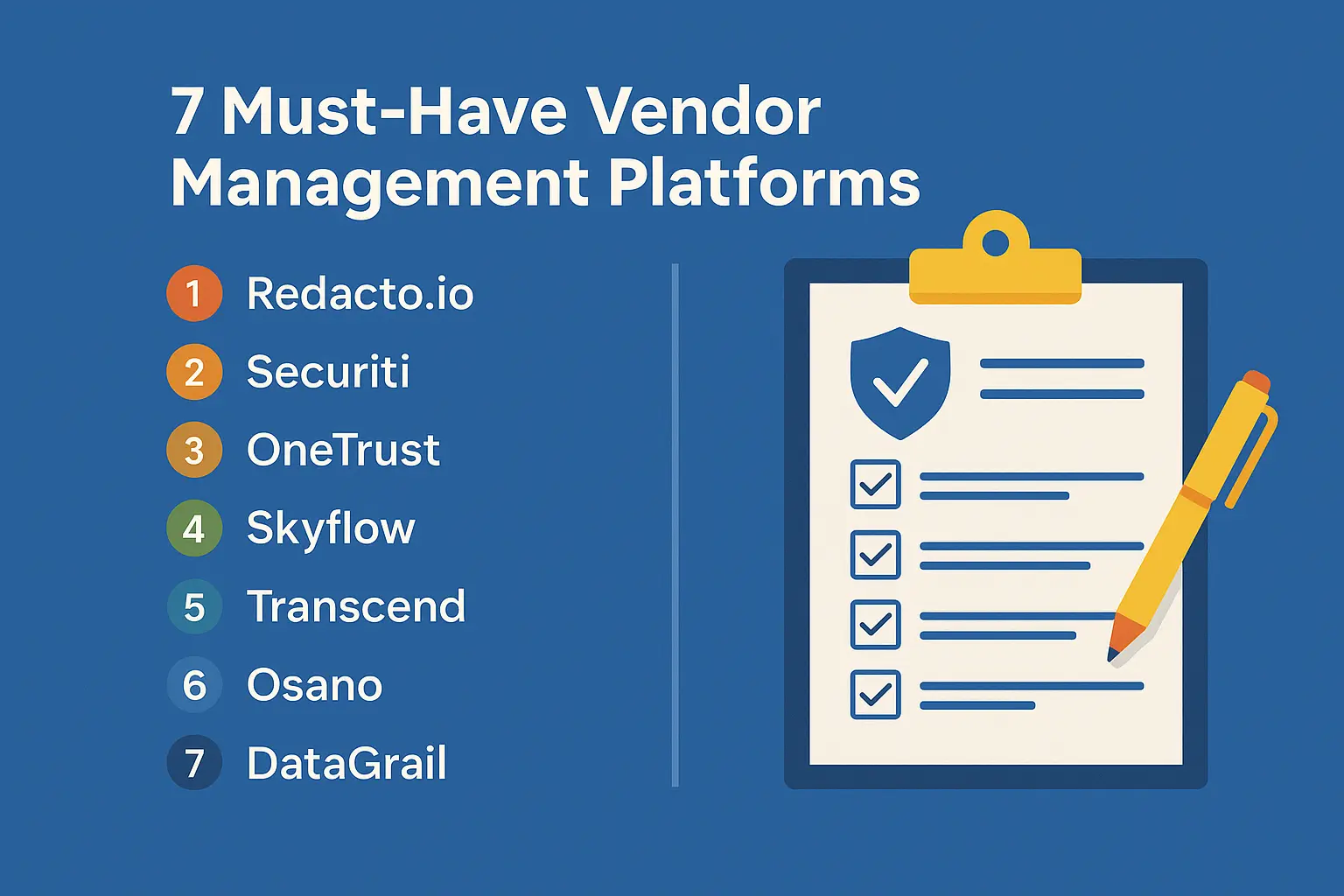
India’s Digital Personal Data Protection Act (DPDP): What Businesses Need to Know
The Digital Personal Data Protection Act (DPDP) has re-established data control in India, respecting privacy and responsibility and promoting trust between businesses and consumers. It controls the data collection, storage, and processing.
DPDP has enabled citizens to have greater control over their personal information, and it is up to the business to implement compliant practices. The act also aligns India with global data protection laws as exemplified by regulations such as GDPR.
To businesses, DPDP compliance is not a matter of choice; it is one of the paths to gaining trust and preventing the penalties. Companies can implement tools such as Redacto to make the compliance process easier and automate the data privacy process.
What is the DPDP Act?
According to the Digital Personal Data Protection Act (DPDP), personal data began to be regulated in 2023. It is transparent, secure, and ethical in the sense of handling sensitive data.
According to the Act, data fiduciaries, or businesses, have the responsibility to process personal data, and the Data Principal or the individual also continues to own and have rights over their data. This entails the right to access, modify, and delete his personal data.
DPDP is applicable to those companies that handle digital personal data of Indian citizens both within the country or abroad. It also focuses on a consent-based model whereby consent is sought by individuals prior to the collection and/or utilisation of data.
Businesses are required to align all business activities with DPDP requirements, which include informing people of information breaches and the safety of data gathered. This system is supposed to boost digital accountability and confidence for users.
Key Features of the DPDP Act
The DPDP Act ensures robust data governance with these core features:
- Consent-Based Data Processing: Explicit and informed consent is mandatory before processing personal data.
- Individual Rights: Data principals can access, correct, and request the deletion of their personal data.
- Significant Data Fiduciaries (SDFs): Stricter obligations apply, such as appointing a Data Protection Officer (DPO).
- Breach Notification Rules: Businesses must notify affected individuals and authorities in the event of breaches.
- Purpose Limitation: Data can only be collected and utilized for its declared purpose.
Benefits of the DPDP Act for Businesses

The DPDP Act has numerous benefits for organizations striving for secure and compliant data processing:
- Customer Trust: Compliant businesses establish themselves as trustworthy in handling user information.
- Legal Clarity: Businesses gain a structured approach to data privacy, avoiding ambiguity.
- Market Opportunities: Alignment with global privacy expectations like GDPR opens up international business opportunities.
- Risk Mitigation: Protecting against breaches reduces exposure to fines and reputational harm.
- Enhanced Digital Transformation: Encourages adoption of modern data-handling tools and technologies.
Steps to Achieve DPDP Compliance
Here are the steps to achieve the DPDP compilance of your business:
- Data Inventory and Mapping: Identify and classify all personal data within your organization to ensure adherence to DPDP regulations.
- Consent Management: Implement systems to collect, store, and manage individual consent efficiently, particularly for explicit or sensitive data categories.
- Data Security Measures: Adopt robust measures like encryption, access controls, and regular security audits to safeguard data.
- Employee Training: Empower staff with knowledge of DPDP requirements and best practices in data processing and handling.
- Impact Assessments: Conduct regular Data Protection Impact Assessments (DPIAs) to evaluate privacy risks and maintain compliance
Challenges Businesses May Face
While the framework offers clarity, challenges persist:
- Cost of Compliance: High financial investment in upgrading processes and systems.
- Managing Data Breaches: Swiftly identifying and reporting breaches under tight deadlines is complex.
- Consent Monitoring: Maintaining accurate, verifiable consent logs can strain operational resources.
- Global Synchronisation: Aligning DPDP requirements with GDPR and CCPA is a significant challenge.
- Operational Adaptation: Turning policies into practical workflows takes time and expertise.
- Technical Infrastructure: Small businesses may find it challenging to implement enterprise-level technologies.
Penalties for Non-Compliance
Failure to adhere to the DPDP Act is associated with significant financial and reputational risks. The punishment on serious offences is up to INR 250 crores (~$30 million), and this does not encourage non-compliance.
Customer relations could be lost, and this would deteriorate the relationship with the businesses as well as affect its sustainability. Breach may lead to losses in the contract in case clients lose confidence.
Businesses should employ effective proactive compliance, including monitoring systems and auditing, to evade the penalties. Automation software such as Redacto can assist in bringing down the risk and expense of compliance efforts.
Conclusion
The DPDP Act will transform the state of data privacy in India and offer transparency and accountability. Businesses that are focused on compliance are not only on the track of compliance but also establish or earn the trust of their customers.
Adopt the automated software, such as Redacto, to make the implementation of DPDP much easier, secure and sensitive data, and ensure top-notch performance in a privacy-intelligent world.
FAQs
1. What is the DPDP Act?
The DPDP Act is a 2023 regulation in India designed to protect personal data and enforce accountability in its processing.
2. Who does the DPDP Act apply to?
It applies to businesses both in India and abroad that handle personal data of Indian citizens.
3. What rights do individuals have under DPDP?
Individuals can access, correct, and delete their data, while also controlling how their information is processed.
4. What are the penalties for non-compliance?
Penalties can go up to INR 250 crores (~$30 million), causing potential reputational and financial damage.
5. How does the DPDP Act compare with GDPR?
Both emphasize consent, transparency, and rights, but the DPDP Act is tailored for India's data landscape.




%20Redacto%20logo_New.png)
.jpg)





